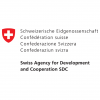Executive Summary
The interview is one of the - if not the - most important tools journalists have to obtain information, to expand on information they may have from other sources, and to clarify facts and see things from different perspectives (ISI 2013). In covering water and sanitation related issues the interview is a format through which voices of not only experts but also the people most affected by mismanagement of water resources are conveyed to the reader.
An interview reproduces an encounter between the journalist and an interview subject, or interviewee, whose opinions and expertise relating to a certain topic are of interest to readers. Here you will find out what different types of interviews exist, how to construct and conduct an interview.
Introduction
The two pre-conditions for an interview to become interesting to the reader are that:
- It evolves around a water or sanitation topic that is relevant to the reader, because it affect him or her directly or is important for the broader political, economic or social development and
- The interviewee contributes new insights or through his/her expertise and/or expresses interesting or controversial opinions that are thought provoking for the reader.
During an interview, the journalist’s own opinions are not relevant. Instead information about the interviewee’s life, their opinions or their expertise are elicited. The journalist, or interviewer, acts on behalf of the readers, asking questions.
What kinds of interviews are there?
About a certain water related topic or event: where experts or knowledgeable individuals are asked to provide information about that topic or event.
For opinions and analysis: where experts or knowledgeable individuals give their opinions on, or analysis of, certain topics or events. These opinions and analyses may come under critical scrutiny by the interviewer.
On a more personal basis: where the interviewer questions persons who are of interest because of who they are, whether that relates to current affairs, their field of expertise, their mandate or for other reasons.
In practice, the boundaries between the various interview formats are often blurred.
What sorts of questions does an interview involve?
- Questions that elicit longer answers. Avoid questions that could be answered with a simple “yes” or “no”.
- Questions that the audience might have wanted to put themselves. Avoid questions that could result in bluster or babble from the interviewee.
- Questions that maintain a distance between interviewer and interviewee. Avoid questions that the interviewee might praise, or enjoy being asked. Remain critical.
How is an interview constructed?
An interview may be introduced by a short explanatory paragraph, in which the reader is introduced to the interviewee and brought up-to-date with any major topic being discussed. It should have a clear topic, which will have been written about in the introductory paragraphs.
An interview may begin with any particularly thought provoking or interesting question that keeps the reader interested until the end.
An interview is like any conversation. The questions and answers relate to one another meaningfully.
Questions shouldn’t be longer than three or four lines and answers shouldn’t be longer than 10 to 15 lines.
How is an interview conducted / written up?
Depending on what kind of interview is being conducted, the language used could be anything from casual and conversational to professional and understood only by experts.
Even if the interviewer understands the jargon used by experts, this needs to be “translated” for the layman. Technical terms (like non-revenue water, etc.), jargon and abbreviations must be explained.
Try and retain the unique figures of speech or characteristic flavour of the way an interviewee speaks. This gives the interview flavour.
Checklist
- Is the general topic suitably covered by an interview? Or would it be better to use some other story format - for instance, a profile or a feature that includes the interview? In a profile or a feature, it’s possible to add more information and more journalistic observations.
- Does the reader understand why this interview is taking place and who the interviewee is?
- As the interview progresses, is the reader being adequately informed about the background and motivation behind questions being asked? What about the answers?
- Will the reader be able to understand any technical language, jargon or expert opinions?
- Has any unnecessary information, verbosity and general, uninformative chatter been removed from the finished interview?
- Were all the relevant, important questions answered? Do the answers correspond to the questions and make sense?
Reporter’s Guide to the Millenium Development Goals: covering Development Commitments for 2015 and beyond
Shortcuts to Journalism: The Basics of Print, Online and Broadcast Reporting
When basic questions about journalism come up, this handbook, written and produced by Media in Cooperation and Transition (MICT), provides clear, brief and precise answers. Shortcuts to Journalism isn’t just for journalists – it’s also helpful for non-journalists. Download the English version here or the Arabic version here.
Schmidt, E., Tirok, M. and Bösch, M. (2016): Shortcuts to Journalism: The Basics of Print, Online and Broadcast Reporting. Berlin, Germany: Media in Cooperation and Transition gGmbH PDFIWA: Interview with Sergio Campos
Mr. Sergio Campos is Water and Sanitation Division Chief at the Inter-American Development Bank.
http://www.iwa-network.org/interview-with-sergio-campos-water-and-sanitation-division-chief-at-the-inter-american-development-bank/ [Accessed: 16.02.2018]Mr. Sergio Campos is Water and Sanitation Division Chief at the Inter-American Development Bank.
The Source Magazine: Interview with Dr Hazim El-Naser
Jonathan Andrews met with Dr Hazim El-Naser (Minister of Water and Irrigation, Jordan) to discuss the impact of the Syrian crisis on his country’s water resources, new cooperation with Israel and the Palestinians, and his personal dream to create an international training centre for water leaders.


